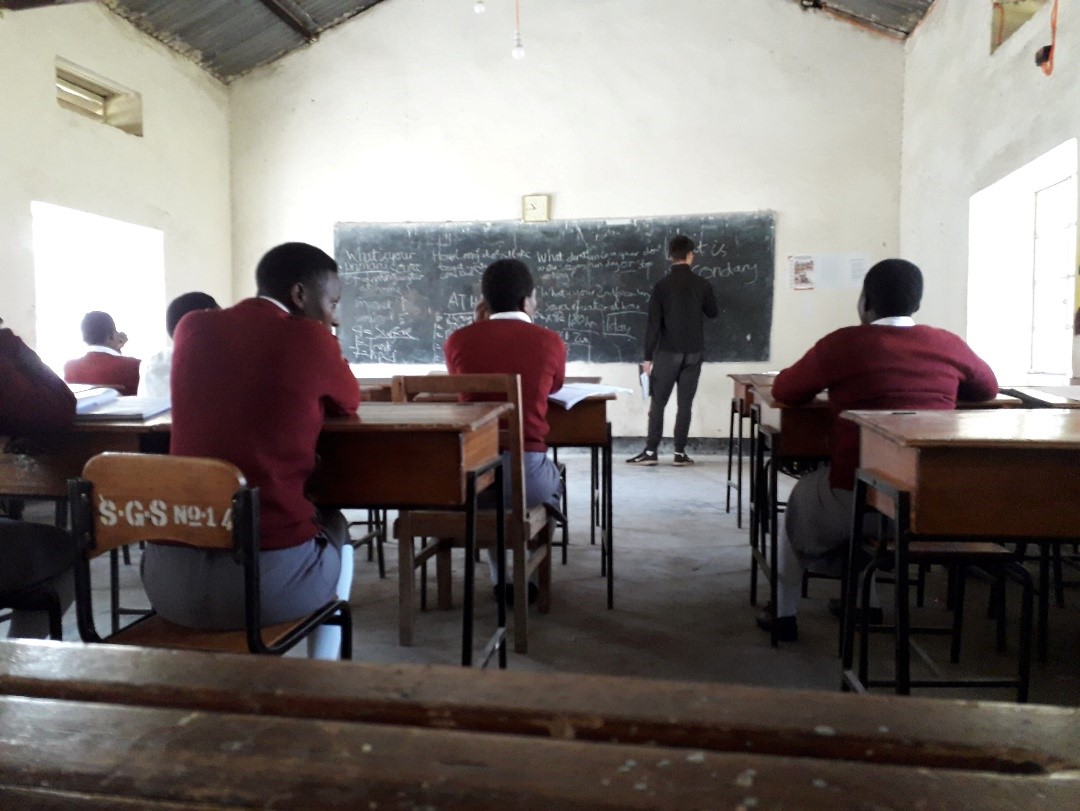This summer, IWSN Director Prof Chad Staddon, Field Engineer Alan Cook and a team of six students from UWE Bristol travelled to Kisoro, Uganda to conduct water research as part of the UWE Global Water Security Programme. The team commissioned a newly-built lab, the hub of our research activities in Kisoro. Here, BSc Environmental Science student Ed Hammond describes his experiences.
 The team arrived in Kigali, Rwanda where we prepared for the trip north, to southwestern Uganda. We gathered onto the mini-bus and travelled through the extensive semi-arid rainforest in areas surrounding the Rwanda-Uganda borders. On arrival in Kisoro, a day was spent acclimatising to the Equatorial and high-altitude surroundings, meeting the community and discussing how the trip would be organised. This was very thorough, as the trip was led on the ground by Alan Cook, an experienced water engineer with many years of experience in East Africa.
The team arrived in Kigali, Rwanda where we prepared for the trip north, to southwestern Uganda. We gathered onto the mini-bus and travelled through the extensive semi-arid rainforest in areas surrounding the Rwanda-Uganda borders. On arrival in Kisoro, a day was spent acclimatising to the Equatorial and high-altitude surroundings, meeting the community and discussing how the trip would be organised. This was very thorough, as the trip was led on the ground by Alan Cook, an experienced water engineer with many years of experience in East Africa.
The first step was to meet the affiliated Diocese of Muhabura members and the wider community to introduce ourselves, pick up their spare Hilux truck and go through plans for the upcoming four weeks. Following this, the team set up the newly-built lab at Seseme Girls’ Secondary School. The lab was bare, so all of the microbiological equipment was counted and organised into its designated place. The space, along with the equipment, was also sterilised so it was ready for sampling. The lab proved to be perfectly appropriate for the programme’s needs – suitable for processing large volumes of water samples and with an area designed for administrative work.
 Once this was completed, the sampling process started. The aim was to sample fifty rainwater harvesting tanks, a few gravity-fed water schemes and some surface waters, spread throughout ten rural villages in the local district. The team spent multiple enjoyable days in the field sampling, going from village to village in the truck, through the hills and valleys of the region. These days emphasised just how welcome we were made to feel – as the adult locals were asking about what we were doing, we were often being followed by 100s of schoolchildren. These samples were then taken back to the lab to test for total and faecal bacterial content and specific bacterial species known to be harmful to health, specifically E. coli and enterococci bacteria. The rural villages often rely on rainwater harvesting tanks for drinking water as the communities cannot afford other improved water supplies and are often far from freshwater sources. Thus, it is essential that the tanks are properly maintained, both to maximise their output and provide a consistent supply of clean drinking water. A common downfall of large NGOs is that money, time and effort is largely spent on capital investment, but the maintenance requirements are often inadequate – this programme has the potential to raise awareness of this issue.
Once this was completed, the sampling process started. The aim was to sample fifty rainwater harvesting tanks, a few gravity-fed water schemes and some surface waters, spread throughout ten rural villages in the local district. The team spent multiple enjoyable days in the field sampling, going from village to village in the truck, through the hills and valleys of the region. These days emphasised just how welcome we were made to feel – as the adult locals were asking about what we were doing, we were often being followed by 100s of schoolchildren. These samples were then taken back to the lab to test for total and faecal bacterial content and specific bacterial species known to be harmful to health, specifically E. coli and enterococci bacteria. The rural villages often rely on rainwater harvesting tanks for drinking water as the communities cannot afford other improved water supplies and are often far from freshwater sources. Thus, it is essential that the tanks are properly maintained, both to maximise their output and provide a consistent supply of clean drinking water. A common downfall of large NGOs is that money, time and effort is largely spent on capital investment, but the maintenance requirements are often inadequate – this programme has the potential to raise awareness of this issue.
 Along with the lab work, a survey was designed to assess all aspects of the physical conditions of the tanks, to gain an understanding of the state of the infrastructure. The tanks are all installed by WATSAN, an organisation that aims to provide reliable water and sanitation services for vulnerable communities in the area.
Along with the lab work, a survey was designed to assess all aspects of the physical conditions of the tanks, to gain an understanding of the state of the infrastructure. The tanks are all installed by WATSAN, an organisation that aims to provide reliable water and sanitation services for vulnerable communities in the area.
Later on in the trip, a pilot survey of social-demographic, water and health-based questions was tested on the villagers of Gitovu. This survey is designed to gain social perceptions in the area and understand the community’s level of access to clean, safe and affordable drinking water. It will be very interesting to compare these results with the quantitative data from the lab, and we hope a detailed overview of water scarcity and poverty in the district will emerge.
